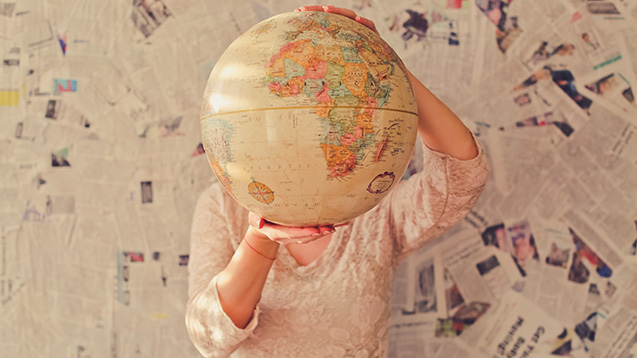International royalty collections for music-makers and rightsholders hit €9.2bn in 2016, according to new figures from the International Confederation of Societies of Authors and Composers (CISAC).
This represents an 18.5 percent increase since 2012, or a six percent increase on 2015’s €8.6bn, the latest CISAC Annual Report, which tracks the collections of its member societies, has noted.
Music made up €8bn of the €9.2bn total collected, with the audiovisual sector next, on €578m. Other sectors noted include literature (€208m), dramatic (€190m) and visual arts (€174m).
Europe was the largest contributor to global royalties, with 107 collecting societies across 48 countries bringing in €5.2bn for rightsholders.
Canada and the US were next, with 16 societies gathering €2bn in royalties for their members.
The Asia-Pacific and Latin America and Caribbean territories collected €1.4bn and €557m respectively during 2016. Africa, which is still an emerging market for copyright and royalty collections, registered €67m.
Jean-Michel Jarre, CISAC president, said: ‘Globally, we have raised our voice to a new level, engaging with governments, decision-makers and the media. I am totally passionate about my work for CISAC, and I feel we are “moving the needle” for creators.’
He pointed to the organisation’s ongoing work with the European Parliament to campaign on the transfer of value from creators to digital content platforms, and his speech in Brussels this March, which called on the EU to adopt better protections for creators in its upcoming Copyright Directive.
‘First, we ask for the simple right to be able to live from our creative works. Authors’ rights and copyright rules are the only way to ensure our living and to be able to continue our artistic activities,’ he continued.
‘They are our only leverage in negotiations with those who use our works. Second, our rights today are not being properly protected. Inadequate legislation, poor implementation of copyright laws and the sheer dominance of the corporations are eroding our rights and our income. This is especially true in the digital world.
‘And finally, we fight not for the past but for the future. We need a 21st century copyright framework for a 21st century digital market – one that allows future generations of creators to make a living from their work. I think these are strong, simple messages binding together our common campaign for a fair working environment for creators.’
This represents an 18.5 percent increase since 2012, or a six percent increase on 2015’s €8.6bn, the latest CISAC Annual Report, which tracks the collections of its member societies, has noted.
Music made up €8bn of the €9.2bn total collected, with the audiovisual sector next, on €578m. Other sectors noted include literature (€208m), dramatic (€190m) and visual arts (€174m).
Europe was the largest contributor to global royalties, with 107 collecting societies across 48 countries bringing in €5.2bn for rightsholders.
Canada and the US were next, with 16 societies gathering €2bn in royalties for their members.
The Asia-Pacific and Latin America and Caribbean territories collected €1.4bn and €557m respectively during 2016. Africa, which is still an emerging market for copyright and royalty collections, registered €67m.
Jean-Michel Jarre, CISAC president, said: ‘Globally, we have raised our voice to a new level, engaging with governments, decision-makers and the media. I am totally passionate about my work for CISAC, and I feel we are “moving the needle” for creators.’
He pointed to the organisation’s ongoing work with the European Parliament to campaign on the transfer of value from creators to digital content platforms, and his speech in Brussels this March, which called on the EU to adopt better protections for creators in its upcoming Copyright Directive.
‘First, we ask for the simple right to be able to live from our creative works. Authors’ rights and copyright rules are the only way to ensure our living and to be able to continue our artistic activities,’ he continued.
‘They are our only leverage in negotiations with those who use our works. Second, our rights today are not being properly protected. Inadequate legislation, poor implementation of copyright laws and the sheer dominance of the corporations are eroding our rights and our income. This is especially true in the digital world.
‘And finally, we fight not for the past but for the future. We need a 21st century copyright framework for a 21st century digital market – one that allows future generations of creators to make a living from their work. I think these are strong, simple messages binding together our common campaign for a fair working environment for creators.’


